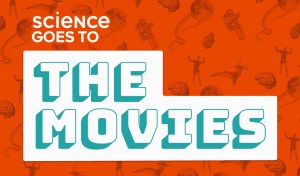Was The Nostalgic Music In ‘Argylle’ Crucial To The Plot?
In the energetic spy adventure, music helps a shy novelist remember who she actually is. There’s some science to how music triggers memories.
 “Argylle,” a romantic spy movie from “Kingsman” director Matthew Vauhgn, has a lot of twists. It’s impossible to avoid discussing its unexpected turns entirely, so be warned: There are some “Argylle” spoilers ahead.
“Argylle,” a romantic spy movie from “Kingsman” director Matthew Vauhgn, has a lot of twists. It’s impossible to avoid discussing its unexpected turns entirely, so be warned: There are some “Argylle” spoilers ahead.
Elly Conway (Bryce Dallas Howard) is an introverted, anxious writer who’s just written a new installment of her popular spy book series called Argylle. She’s a homebody, but Elly’s writing process lets her dive into vivid fantasies of the life of a spy—that is until one day she gets sucked into a real spy story herself.
Unbeknownst to her, Elly’s writing has gotten a bit too accurate, attracting the attention of an actual spy named Aidan Wylde (Sam Rockwell). Meeting her on a train, Aidan whisks Elly away on a haphazard mission to evade a criminal intelligence organization that wants to capture her and unlock secrets they believe she’ll reveal in her next book. Elly learns to shoot a gun, jump off a building, ice skate, and even crush skulls, all to the sound of David Bowie and other nostalgic tunes from the ‘70s and ‘80s.
The “Argylle” soundtrack is cut from the same cloth as Marvel’s “Guardians of the Galaxy”—a delightful and action-packed romp through upbeat retro tunes. Nostalgia is a popular cinematic tool, and it works on a neurological level to remind audiences of warm and fuzzy memories. But the memory-recall effect of the soundtrack in “Argylle” doesn’t just play to the audience, it also affects the main character herself, who had a memory-loss event before the movie began.

While Elly’s adventure moves her farther and farther away from what she thought was home, Aidan tries to remind her of her past—as a spy herself. Toward the middle of the movie, Aidan and Elly hear a song he says they used to enjoy together, “Now and Then” by the Beatles. (It’s actually a newly released Beatles song, which is somehow well-known to the characters.) In that moment, Elly’s romantic feelings for Aidan and memories of the person she used to be seem to flood back to her. After struggling with trust and coordination, Elly and Aidan are able to sync up for a dramatic shootout, perfectly choreographed to a cover of Snow Patrol’s “Run.”
Some research has shown that music can evoke vivid memories of an earlier time of life, and help those with dementia and memory loss recall specific events. The nostalgic soundtrack of “Argylle” might have helped sell the movie to wistful audiences, but does science show it could have driven the film’s narrative?
In 2022, scientists at the University of Durham in the UK tried to figure out how a person’s familiarity with music affected the way it prompted memories from their life. They found that while unfamiliar music could help listeners recall specific memories, songs the participants knew well led them to recall more memories, and to do so more quickly.
Dr. Kelly Jakubowski, one of the authors of the study, says that familiar songs prompted not just more memories, but more positive memories. But she attributes that to the fact that participants tended to like those songs more. “It’s not necessarily the music just being purely familiar [that evokes positive memories],” Jakubowski says. “It’s more about if the music is music that you feel a personal connection to, for instance.”
So, hearing “Now and Then,” which held special meaning for Elly and Aidan, might have made it more likely for Elly to recall happy memories with him than hearing some other song. And I myself may have decided to go see the film after hearing David Bowie’s “Let’s Dance” in the trailer because it reminds me of having the time of my life at summer camp. Who’s to say?
In “Argylle,” Elly writes a book series that she believes is completely fictional, but some events in the series turn out to be based on repressed memories. Even before she was able to understand those memories were autobiographical, Elly could recall them in the context of imagination. Jakubowski’s recent paper about the connection between music, memory, and imagination illuminates the parallels between accessing fiction and memory in the mind. Just as memories aren’t a purely accurate record, she says, fiction is often not completely fabricated. “When we imagine fictional or made-up stories, they’re not fully made up either, right? They’re shaped by our previous life experiences,” she says.
I recently asked a friend who had seen “Argylle” if he thought it was any good. He said “no,” but with a huge grin on his face. I think that accurately describes how I felt, too. The film is stiff and baffling, but in a creative and freewheeling sort of way. I also love a good franchise, and there’s definitely potential for more “Argylle” in our future. In the grand scheme of things, I think there have been significantly worse versions of this “quirky spy” film—see “Bullet Train.”
You can see “Argylle” in theaters.
Like this article? Subscribe to the newsletter to get more science stories about movies delivered to your inbox.
Emma Lee Gometz is Science Friday’s Digital Producer of Engagement. She writes SciFri’s “Science Goes To The Movies” series and is a journalist and illustrator based in Queens, NY.